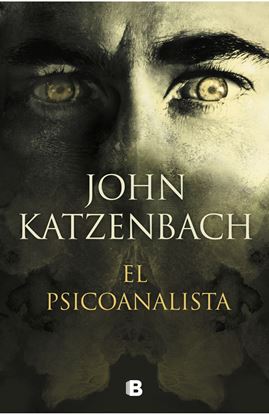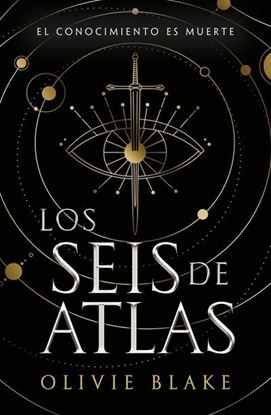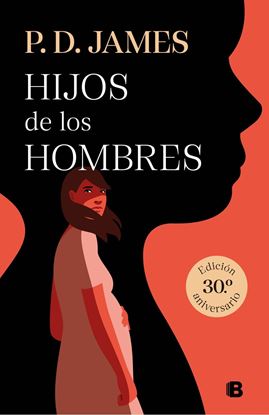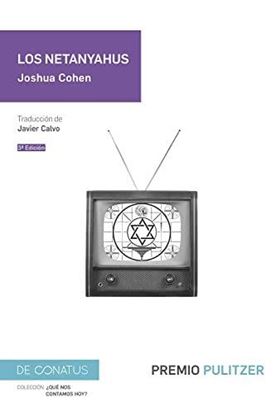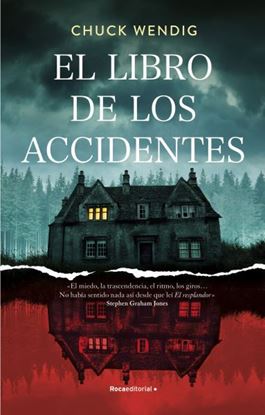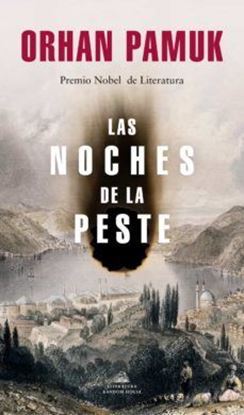

EL PSICOANALISTA
«Feliz aniversario, doctor. Bienvenido al primer día de su muerte.»
Así comienza el anónimo que recibe el psicoanalista Frederick Starks, y que le obliga a emplear toda su astucia y rapidez para, en quince días, averiguar quién es el autor de esa amenazadora misiva que promete hacerle la vida imposible.
De no conseguir su objetivo, deberá elegir entre suicidarse o ser testigo de cómo, uno tras otro, sus familiares y conocidos mueren por obra de un psicópata decidido a llevar hasta el final su sed de venganza.
Dando un inesperado giro a la relación entre médico y paciente, John Katzenbach nos ofrece una novela emblemática del mejor suspense psicológico.
1,450
LOS SEIS DE ATLAS (MEX)
Cada década se eligen a los seis magos más extraordinarios para que compitan por una plaza en la Sociedad Alejandrina, la sociedad secreta más importante del mundo.
Los seleccionados disfrutarán de una vida de poder y prestigio que superará sus sueños más salvajes. Pero ¿a qué precio?
Cada uno de los seis reclutados tiene sus motivos para aceptar la imprecisa invitación de la Sociedad. Aunque tengan que intimar más de lo que hubieran imaginado con sus enemigos más peligrosos o sufrir una traición imperdonable de sus mejores aliados, lucharán con uñas y dientes por el derecho a unirse a las filas de los alejandrinos.
Aunque con ello se arriesguen con ello a no sobrevivir
SECRETOS
TRAICIÓN
SEDUCCIÓN
PODER
BIENVENIDO A LA SOCIEDAD ALEJANDRINA
1,450
HIJOS DE LOS HOMBRES (ED. 30 ANIV.)
Estamos en 2021. Hace veinticinco años que no nace un solo niño en el planeta tierra. La raza humana se enfrenta a su extinción.
Bajo el despótico mandato de Xan Lyppiat, el Guardián de Inglaterra, los viejos viven sumidos en la desesperación y los jóvenes en la crueldad. Theo Faren, primo del Guardián, lleva una vida solitaria, resignado a la época siniestra que le ha tocado.
Hasta que el encuentro fortuito con una mujer le lleva a contactar con un grupo de disidentes. De pronto, su vida cambia de manera irrevocable y se ve obligado a tomar decisiones que afectarán al futuro de la humanidad.
En el año 1992 se publicaba por primera vez esta distopía icónica para toda una generación. Treinta años después, Hijos de los hombres sigue siendo un estremecedor retrato del mundo que habitamos.
1,450
LOS NETANYAHUS
En la navidad de 1959, Ruben Blum, un historiador judío, es elegido en la universidad de Corbin para valorar la aplicación de un exiliado israelí especializado en la inquisición española. Se trata de Benzion Netanyahu, padre de Benjamín Netanyahu, ex-presidente de Israel.
Joshua Cohen mezcla ficción y realidad en esta novela de campus que pudo escribir gracias a su amistad con Harold Bloom.
Los Netanyahus es una comedia salvaje sobre la integración, la identidad y la política. Descubre al lector la historia cotidiana de la creación del estado de Israel, la emigración judía en los Estados Unidos y las teorías sionistas sobre la expulsión de los judíos en la península ibérica. Es una novela en la que todos nos podemos sentir identificados, precisamente preguntándonos qué significa tener una identidad nacional, religiosa o de género.
1,450
EL LIBRO DE LOS ACCIDENTES
Hace mucho tiempo, Nathan vivía en una casa de campo con un padre maltratador, y nunca le ha contado a su familia lo que ocurrió allí.
Hace mucho tiempo, Maddie era una niña que jugaba a las muñecas en su habitación y vio algo que no tendría que haber visto… Y ahora intenta recordar aquel momento traumático creando unas esculturas inquietantes.
Hace mucho tiempo, algo siniestro y voraz deambulaba por los túneles y las montañas y las minas de carbón de su ciudad natal en la zona rural de Pensilvania.
Ahora, Nate y Maddie Graves están casados y han regresado a ese lugar con su hijo, Oliver.
Y ahora, lo que ocurrió hace mucho tiempo ha empezado a ocurrir otra vez… Y le está ocurriendo a Oliver. Conoce a un chico muy extraño que se convierte en su mejor amigo, un chico con secretos y afinidad por la magia negra.
Esa magia negra los lleva al epicentro de una batalla entre el bien y el mal, un enfrentamiento por conservar el alma de la familia… Y puede que incluso la del mundo entero. Pero la familia Graves tiene un arma secreta: el amor que se profesan los unos a los otros.
1,450
ESTUCHE TRILOGIA MEDIEVAL
Elcastillo (Trilogía Medieval 1)
El rey Sancho III el Mayor decide levantar una fortificación en una recóndita sierra, poco poblada y desde la que se podía avistar al enemigo musulmán a diez kilómetros de distancia. Y con la promesa de un futuro mejor, atrajo a un grupo de hombres y mujeres para quienes la supervivencia era una heroicidad cotidiana, y quienes, con sus escasos medios y conocimientos, lograron superar las limitaciones que les imponían la ignorancia y el poder hasta culminar la fortaleza religiosa y militar desde la que se gestó uno de los más importantes reinos medievales, clave de la Reconquista.
La ciudad (Trilogía Medieval 2)
Año 1284. Cae la noche en una de las ciudades medievales más bellas del mundo. ¿Te atreves a caminar por sus estrechas calles, por sus empinadas cuestas y sus asombrosos rincones? Empieza a oscurecer. Sientes frío. Escuchas los rumores acerca de las inexplicables muertes que se están sucediendo. De los secretos que esconden los gremios. De la peligrosa mujer encerrada en las mazmorras...
El monasterio (Trilogía Medieval 3)
En el siglo XIV el monasterio de Santa María de Veruela es escenario de una cruenta guerra entre las coronas de Castilla y Aragón. Hasta allí llega Bizén con una misión: recuperar los restos que yacen en una de sus tumbas, algo a lo que el abad se niega. Pero cuando uno de los hermanos de la abadía aparece misteriosamente asesinado, Bizén se verá implicado en una muy peligrosa intriga..., porque si no encuentra al culpable, su propio secreto será descubierto.
1,450
CIEN AÑOS DE SOLEDAD. ED. CONMEM. (RAE)
En el quincuagésimo aniversario de su publicación original, la Real Academia Española y la Asociación de Academias de la Lengua Española rescatan su edición conmemorativa de esta obra maestra de la literatura del siglo XX.
Pertenece a la serie "Edición conmemorativa de la RAE y la ASALE"
En 2007, coincidiendo con el octogésimo cumpleaños de Gabriel García Márquez, la Real Academia Española y la Asociación de Academias de la Lengua Española prepararon esta edición conmemorativa de Cien años de soledad publicada por Alfaguara. Se trata de la última versión que revisó y corrigió personalmente el autor de este clásico contemporáneo sin igual en nuestra lengua.
Hoy, una década más tarde y tras haber pasado varios años lejos de las librerías, la edición vuelve a estar en disposición de los lectores para celebrar el quincuagésimo aniversario de su publicación.
En esta edición, la obra de García Márquez viene acompañada de espléndidos textos críticos de autores de la talla de Mario Vargas Llosa, Álvaro Mutis, Carlos Fuentes, Víctor García de la Concha, Claudio Guillén y Sergio Ramírez, entre otros.
1,450
LAS NOCHES DE LA PESTE
Abril de 1901. Un barco se dirige hacia la isla de Minguer, la perla del Mediterráneo oriental. A bordo se encuentran la princesa Pakize Sultan, sobrina del sultán Abdülhamit II, y su reciente esposo, el doctor Nuri, pero también un misterioso pasajero que viaja de incógnito: el célebre inspector jefe de sanidad del Imperio otomano, encargado de confirmar los rumores de peste que han llegado hasta el continente. En las animadas calles de la capital portuaria nadie puede imaginar la amenaza, ni la revolución que está a punto de fraguarse.
Desde nuestros días, una historiadora nos invita a asomarnos a los meses más turbadores que cambiaron el rumbo histórico de esta isla otomana, marcada por el frágil equilibrio entre cristianos y musulmanes, en un relato que combina historia, literatura y leyenda.
En esta nueva obra del Nobel, destinada a convertirse en uno de los grandes clásicos sobre plagas, Pamuk indaga en las pandemias del pasado. Las noches de la peste es la historia de supervivencia y lucha de unos protagonistas que lidian con las prohibiciones de la cuarentena y la inestabilidad política: un apasionante relato épico de atmósfera asfixiante donde la insurrección y el asesinato conviven con las ansias de libertad, el amor y los actos heroicos.
1,450
EL AMANTE POLACO L2
Stanislaw Poniatowski pasea por la soledad de su palacio, acaba de ser nombrado rey, pero los problemas no se han hecho esperar: las deudas de la corona son incontables, su familia confabula contra él y sus vecinos, Rusia, Austria y Prusia, amenazan con destruir todo aquello por lo que ha luchado. ¿Será capaz de mantener su reino unido? Doscientos años después, Elena es parte de un México que busca la anhelada «modernidad» y su trabajo como periodista le permite ser testigo privilegiada de esa transformación, involucrándola además en experiencias de todo tipo, desde encuentros con políticos y guerrilleros hasta amores y pérdidas irremplazables. Este libro concluye la historia del último rey de Polonia, desde su coronación hasta su inevitable desenlace como el mayor perdedor de una Europa marcada por las conspiraciones. Al mismo tiempo, a lo largo de sus páginas se va dibujando un espléndido mosaico de los claroscuros culturales y políticos de México. Elena Poniatowska, Premio Cervantes 2013, da un cierre magistral a su novela más personal, donde las pasiones de reyes y cortes lejanas se entretejen con las búsquedas y obsesiones de una escritora única.
1,450


